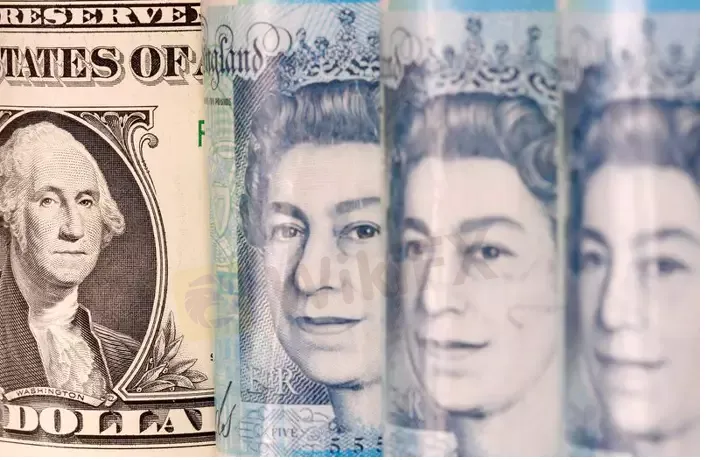简体中文
繁體中文
English
Pусский
日本語
ภาษาไทย
Tiếng Việt
Bahasa Indonesia
Español
हिन्दी
Filippiiniläinen
Français
Deutsch
Português
Türkçe
한국어
العربية
Dollar sags below 20-year peak as euro lifted by ECB bets
Abstract:The dollar languished on Tuesday after being beaten back from a two-decade high versus major peers by a reinvigorated euro.

The tables turned for the two currencies as traders began ramping up bets for a super-sized 75-basis-point interest rate increase by the European Central Bank while paring the odds for one by the U.S. Federal Reserve.
“Recent days have arguably been dominated more by hawkish ECB-speak than Fedspeak,” Alvin Tan, a Singapore-based strategist at Royal Bank of Canada, wrote in a client note.
“There is obviously an active debate among the ECB council members” over the size of hike to approve on Sept. 8, Tan said.
Traders see better than 50% odds for a 75 bps move after a parade of ECB speakers at the Feds annual symposium in Jackson Hole backed the case for a big hike.
By comparison, bets for a 75 bps increase by the Fed on Sept. 21, while higher at 70%, have receded from as much as 75% on Monday.
Monthly U.S. jobs figures due on Friday will be closely watched for further clues to the interest rate outlook.
The dollar index – which measures the greenback against a basket of six currencies, with the euro the most heavily weighted – stood at 108.72 in Asian trading, after dropping back from 109.48 overnight, a level not seen since September 2002.
The euro edged 0.06% higher to $1.0003, adding to Mondays 0.32% rally, its biggest in almost three weeks.
The euro was also helped by a retreat in European gas prices after German economy minister Robert Habbeck said the country was filling gas storage facilities faster than expected.
“The euro has found some stability near parity,” said Sean Callow, a currency strategist at Westpac in Sydney.
“But the euros yields remain unappetising and the deepening gas crisis in Europe means that more aggressive ECB hikes would only deepen recession. We expect EUR/USD to print fresh 20-year lows in coming days, with 0.98 the next obvious target.”
The dollar slid 0.21% to 138.44 yen, after rising to 139 overnight for the first time since mid-July.
Sterling rose 0.08% to $1.17145, continuing its recovery from an almost 2-1/2-year low of $1.16495 reached on Monday.
The risk-sensitive Australian and New Zealand dollars retreated, though.
The Aussie slid 0.22% to $0.6887 amid a decline in commodity prices and a slump in Chinese equities, after bouncing from a six-week low of $0.6841 in the previous session.

Disclaimer:
The views in this article only represent the author's personal views, and do not constitute investment advice on this platform. This platform does not guarantee the accuracy, completeness and timeliness of the information in the article, and will not be liable for any loss caused by the use of or reliance on the information in the article.
Read more

Alleged Concerns with TradeEU.global's Trading Practices
An individual trader has come forward with allegations of an unfavourable experience while using the services of the broker TradeEU.global.

Lured by False Promises: Malaysian Driver Lost RM218K to an Investment Scam
A 49-year-old e-hailing driver in Malaysia fell victim to a fraudulent investment scheme, losing RM218,000 in a matter of weeks. The scheme, which falsely promised returns of 3 to 5 per cent within just three days, left the individual financially devastated.

SFC Freezes $91M in Client Accounts Amid Fraud Probe
SFC freezes $91M in client accounts at IBHK, SBI, Monmonkey, and Soochow over suspected hacking and market manipulation during unauthorized online trades.

WikiEXPO Dubai 2024 will take place soon!
2 Days Left!
WikiFX Broker
Latest News
What Makes Cross-Border Payments Easier Than Ever?
Trader Exposes Unethical Practices by STP Trading
Saxo & Portuguese Bank Partnership
SEC Fines Broker-Dealers $275K for Incomplete SAR Filings
Lured by False Promises: Malaysian Driver Lost RM218K to an Investment Scam
FTX Sets March 2025 Timeline for Creditor Payouts: What It Means for Investors
Italian Regulator Warns Against 5 Websites
Mastercard's 2030 Vision: Biometric-Driven, Tokenized Payments
SFC Freezes $91M in Client Accounts Amid Fraud Probe
Bybit Launches Gold & FX Treasure Hunt with Real Gold Rewards
Currency Calculator


